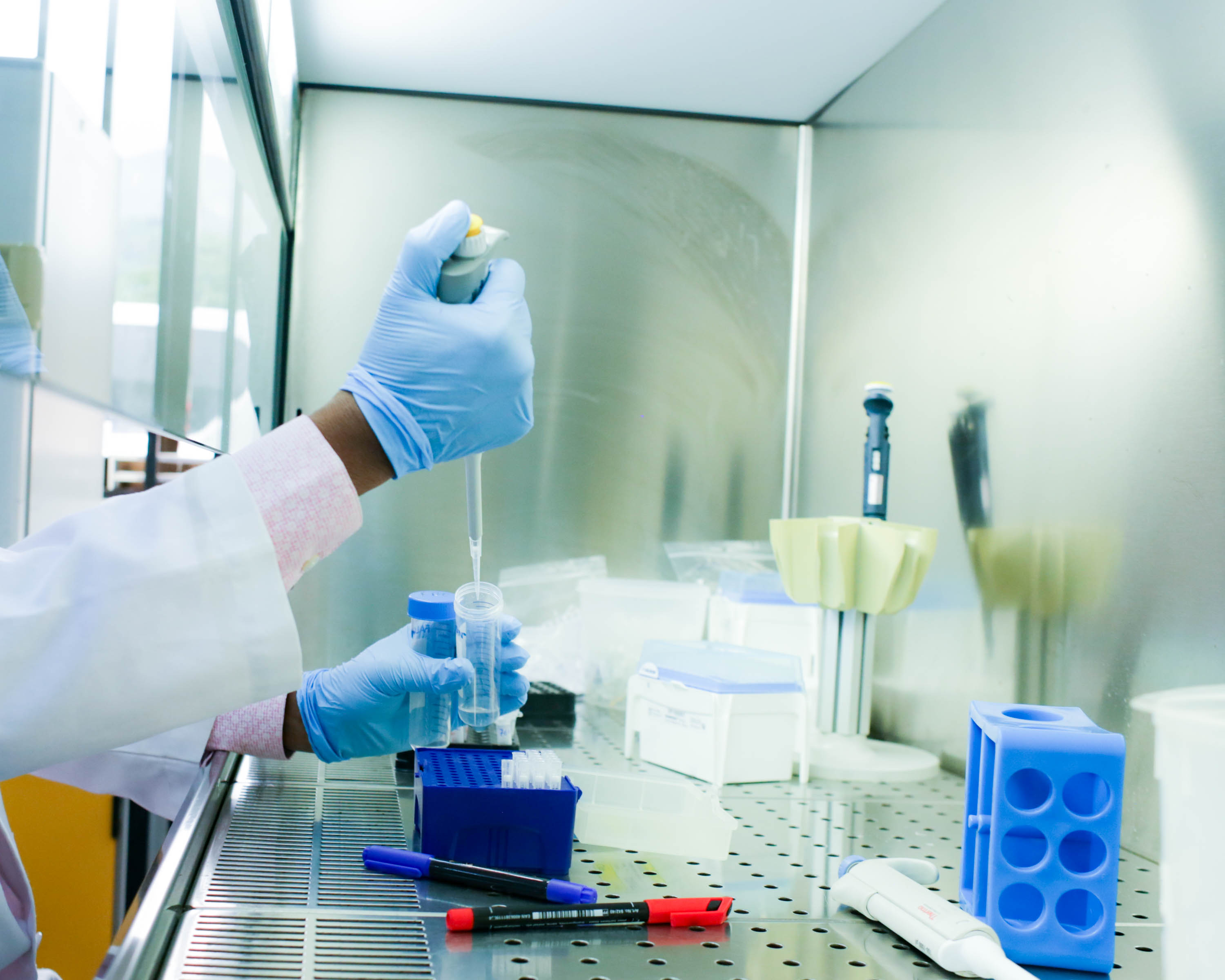Here, Professor Gerald Misinzo and Professor Mark Rweyemamu discuss the potential of the RSIF-PASET Programme
The African Union’s Agenda 2063 (The Africa We Want) provides a framework for embarking on long-term institutional reforms needed to reposition the continent as a strategic player in the global economy. The Science, Technology and Innovation Strategy for Africa, 2024 (STISA-2024) provides an initial 10-year framework for implementing the relevant aspects of Agenda 2063. Africa’s socio-economic transformation is hindered by critical shortage of scientific, engineering and technological expertise.
This shortage contributes to limited adoption, adaptation and diffusion of the scientific and technological innovations that could benefit the continent. Together with appropriate economic and social policies, incentives and institutional structures, building this critical mass of technical-scientific expertise is essential to enable Africa’s socio-economic transformation.
What is the PASET Programme?
Founded in 2013, the Partnership for skills in Applied Sciences, Engineering and Technology (PASET) is an Africa-led initiative, with the objective of strengthening the science, technology and engineering capability in sub-Saharan Africa to further its socio-economic transformation. PASET is envisaged as a partnership of key stakeholders, including sub-Saharan Africa governments,African and other private sector companies operating in Africa, education and training institutions, and new and traditional development partners. It focuses on building a continuum of applied sciences, engineering and technology skills from the technical-vocational level to the postgraduate/research level, for sectors that have potential for growth and employment generation, and for the structural transformation of sub-Saharan Africa countries.
PASET also focuses on building relationships with countries from Asia and Latin America that have successfully built their technical-scientific capacity to support their socio-economic development, through knowledge-sharing, technical assistance and financial supported by African governments, the Partnership champions a regional approach which complements individual country efforts. At the moment, PASET is supported by African Governments (Senegal, Ethiopia, Rwanda, Kenya and Ivory Coast with 15 other countries committing to the initiative), the World Bank and the Governments of the Republic of Korea, Brazil, China, India, and Japan.
One of the flagship programme of PASET is the Regional Scholarship and Innovation Fund (RSIF), a pan-African Science Fund, seeded by African governments and envisaged as a Permanent Fund, to raise the quality of PhD training and applied demand-driven research in competitively selected sub-Saharan Africa universities through partnership with international universities. The RSIF aims to help create a critical mass of highly skilled scientists, professionals and innovators in the Applied Sciences, Engineering and Technology (ASET) fields by training of at least 10,000 new PhD holders in sub-Saharan Africa within 10 years.
It is envisaged that these new African high-quality PhDs in the applied sciences in priority domains will train the next generation of students, researchers and innovators in priority areas, particularly women. Recipients of RSIF PhD grants are competitively selected across sub-Saharan Africa. RSIF supports PASET’s vision of the emergence of a few high-quality research universities in sub-Saharan Africa, with expertise in selected domains: Food security and Agribusiness; ICTs including Big Data and Artificial Intelligence; Minerals, Mining and Materials Engineering; Climate Change; and Energy including Renewables. At the moment, there 11 Africa Host Universities (AHUs).
What happens next?
The RSIF PhD scholars are registered at an AHU and strategically placed at an RSIF International Partner Institutions (IPIs) during the course of their PhD. RSIF IPIs are advanced universities, research institutes/centers or companies (public or private) that are willing and competent to offer research internship opportunities for RSIF PhD Scholars from Africa studying at AHUs. Advanced/international research centers and civil society partners and private sector firms in sub-Saharan Africa, and universities in South Africa, also qualify as IPIs. IPIs provide strategic research attachments to RSIF PhD scholars and provide them with financial and/or in-kind support for an agreed period from 6 to 24 months sandwiched between their initial and final doctoral studies at AHUs. Faculty members of the IPIs jointly supervise PhD scholars from AHUs.
IPIs are also encouraged to support improvement of PhD curricula, provide training of AHU faculty in new curricula and engage in faculty exchange, and this is a factor for consideration in their selection. At the moment, the RSIF IPIs are mostly in the Republic of Korea including Korea Institute of Science and Technology, The Seoul National University Global Research & Development and Business Center, The Seoul National University Institutes of Green-bio Science & Technology, Korea Institute of Energy Research, Korea Research Institute of Chemical Technology. The other IPIs include The International Livestock Research Institute (Kenya), Karlsruhe Institute of Technology (Germany), Maastricht University (The Netherlands), Mohammed VI Polytechnic University (Morocco), University of Greenwich (UK), Virginia Tech (USA) and Worcester Polytechnic Institute (USA).
The research output
The SACIDS Africa Centre of Excellence for Infectious Diseases of Humans and Animals in Eastern and Southern Africa (SACIDS-ACE) of the SACIDS Foundation for One Health hosts the RSIF-PASET Programme on Food Security and Agribusiness at Sokoine University of Agriculture. The Centre attracted 7 out of the 15 first RSIF-PASET cohort who are nationals of Kenya (4), Rwanda (2) and Tanzania (1).
This cohort is on its third year and 5 of these PhD scholars are conducting their research at the Korea Institute of Science and Technology in the Republic of Korea. Already, this cohort is publishing in high impact peer-reviewed journals, for instance Molecules (impact factor of 3.267; Maina et al., 2020; doi: 10.3390/molecules25163682) and BMC Veterinary Research (5-year impact factor 2.179; Hakizimana et al., 2020; doi: 10.1186/s12917-020-02536-8). Twelve out of the 67 second RSIF-PASET cohort were selected to join SACIDS-ACE, including nationals of Benin (1), Burkina Faso (1), Côte d’Ivoire (2), Kenya (4), Rwanda (2), Chad (1) and Tanzania (1). This cohort is registered at Sokoine University of Agriculture and will commence studies during October 2020. The selection for the third batch is ongoing.
The RSIF-PASET programme adopts the overall research management of SACIDS One Health Foundation which is anchored on the theme-based Community of Practice (CoP) concept. This approach ensures that any PhD student/researcher works and is supported and mentored by senior research scientists drawn from the smart partnership consortium institutions from South as well as North. In this programme, RSIF PhD students are mentored and supervised by at least two senior research scientists, one from Sokoine University of Agriculture and the other one from an IPI or SACIDS partner institution in the North. The RSIF-PASET PhD scholars at SACIDS form part of the CoP for viral diseases of food security and livelihood importance, antimicrobial resistance, and One Health Sciences. They also benefit from the O.R. Tambo Africa Research Chair in Viral Epidemics of Short-cycle Animal Stocks (VESAS) and ongoing collaborative projects with the Africa Centres for Disease Control and Prevention (Africa CDC), the Royal Veterinary College and the Pirbright Institute.







